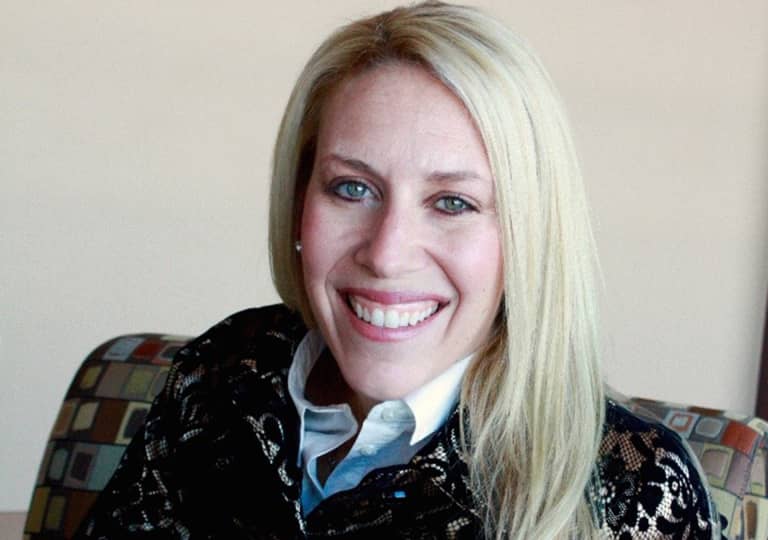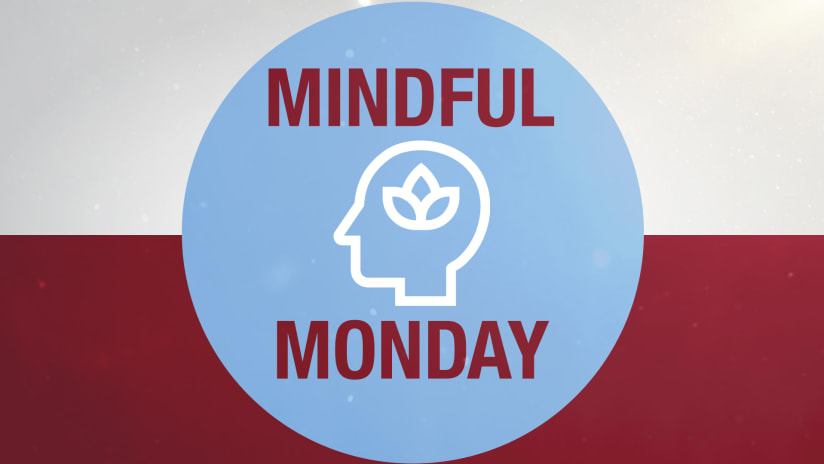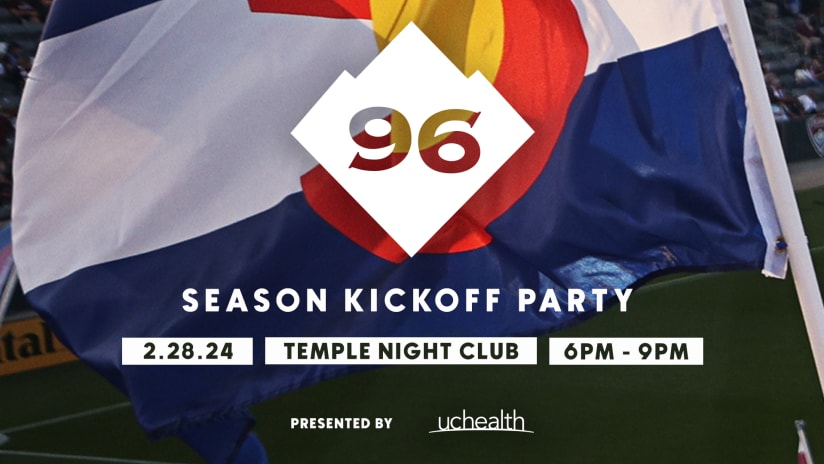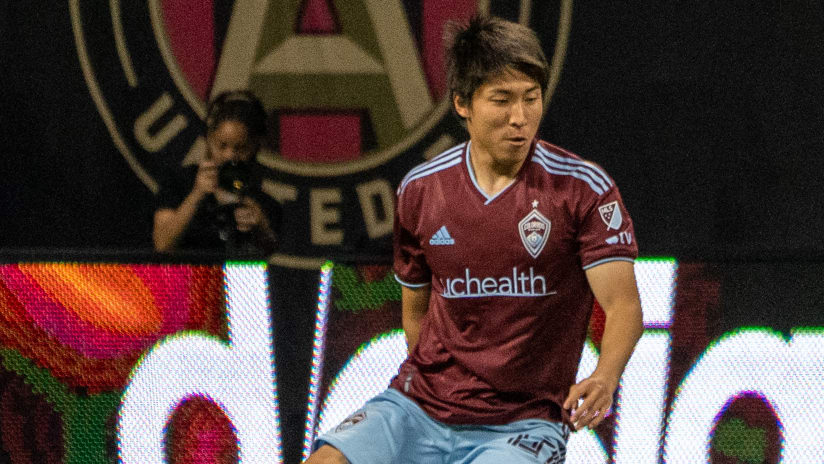As part of Mental Health Awareness Month, we’ll be exploring different aspects of the mental side of sports each Monday in a series titled ‘Mindful Monday’. In our second installment, we talked to Brooke Ewert, founder and owner of the Rocky Mountain Sports Counseling Center.
Brooke works to help athletes with every aspect of their well-being, and she is working to break down the stigma of talking about mental health in the sports community. Brooke talks about not only the struggle of athletes but the importance of understanding and communication for parents of athletes of any age.
ColoradoRapids.com: How would you describe what you do to someone you’ve never met?
Brooke: I am the founder/owner of Rocky Mountain Sports Counseling Center. I am a mental health counselor who specializes in helping athletes as they go through a crisis. These crises can be (not limited to) injuries, mental health disorders, retirement, identity, marriage, and career transitions. I also work with Soccer Chaplains United (SCU) as the Director of Counseling. I work with Rev. Brad Kenney who has served as the volunteer chaplain for the Colorado Rapids for the past 18 years. SCU works with athletes in a holistic approach (the whole person). Also, we work with the athlete’s families (girlfriends, wives, etc.) as well as Rapids staff members to provide support for their needs.
ColoradoRapids.com: You say on your website that you realized in your graduate studies that the mental health of an athlete was equally as important as their physical abilities. What made you come to that realization?
Brooke: I believe mental health is often overlooked for most athletes. Their physical abilities are what we can see. The question is often can they physically compete every day against other athletes? Mental health is what we cannot see because the issues are easily hidden. We cannot see anxiousness, depression, etc., unless an athlete invites someone else into their story. If an athlete is struggling with their mental health, it’s hard for them to be ‘physically’ on the field or engaging with their teammates.
ColoradoRapids.com: In your opinion, do you think athletes should try to mentally separate their home life from their work life? Or do you think that can cause more harm than good?
Brooke: One of the biggest skills I hope that I can give to the athletes that I counsel is how to separate home life from work life. I look at them as two separate entities. I usually call every aspect in an athletes life a ‘container.’ I’ll explain that we want to deal with one container at a time. Often athletes will learn that there is a lot of spillover from home life to work life. I help the athletes to come up with a phrase if there is spillover such as “I’ll deal with that later” or “Right now, I need to compete, and I’ll deal with home life later.” When the athlete is in a counseling session, this is when we process through life skills, and how to deal with family, money, marriage, anxiety, etc.
ColoradoRapids.com: With sport injuries being of varying degrees and almost always unexpected, can you talk a little bit about how you might help someone process their emotions after an injury and use the time that they’re not playing to focus on their mental health?
Brooke: Sports injuries are a great time to work on mental health. There is more time to devote to mental health because they are not training. I will do a lot of grief work during that time. There is a traditional grief process that athletes go through after they are injured: denial, anger, bargaining, depression, and acceptance. Grief is not linear and not every athlete works through these emotions in a step-by-step progression. I will help them to navigate these emotions that they will go through and to help them to find hope in the process. Often counseling becomes their ‘sports season’ so to speak, and we talk through the disappointments of not being able to practice or play. I am always hopeful that the therapeutic skills they gained during the recovery process after the injury will be beneficial to them when they return to sport/life overall.

ColoradoRapids.com: You work with a lot of younger athletes. How do you help a teen who had aspirations of playing sports in college or even professionally, deal with the realization that the expectations they had for themselves, might not work out?
Brooke: I deal with this often. Athletes will at one point not be athletes anymore because retirement from sport is inevitable. A rare athlete makes it into their 40’s. Athletes that come to me for counseling learn from early sessions that I am very interested in who they are when they are not an athlete. “Who are you away from your sport?” This allows me to see where they place their value or what is their identity. I ask them what their hobbies are outside of sport and who are their non-sports friends. To be honest, a lot of times there are blank stares or not knowing who they are away from their sport. I love to see them start to press into that uncomfortableness that comes from that question. Athletes need to develop their whole self because when they finish (high school, college, professionally), they will need to know the answers to these questions because retirement or loss of sport can cause depression or anxiety when the athlete identifies fully as an athlete and not the whole self.
ColoradoRapids.com: ESPN is going to release a documentary at the end of May about Roy Halladay, who famously threw multiple no-hitters. He was often times referred to as ‘perfect’, but behind the scenes he was struggling with addiction. How common do you think a story like Roy’s is for professional athletes who seem like they have it all together, but behind the scenes they’re struggling with something.
Brooke: I’m not going to say all athletes are struggling with their mental health, but I think a fair amount do struggle. Athletes have been taught from a very early age to ‘suck it up’ or ‘push past the pain’ physically and mentally. I believe they are afraid to say “I’m struggling with anxiety or depression” because they might feel isolated, and know it may not be understood by their coach or teammates. I believe a lot of athletes feel if they say they are struggling with a mental health disorder, the coach will replace them. I hear athletes say “I know I am the only one in the locker room who has panic attacks or anxiety.” The sad thing for me when I hear that is I’m often seeing other athletes from their team who are struggling with similar issues. If they could be honest with each other, they would not feel so isolated. My biggest theme when I speak to athletes is to 'tell their story’ to one teammate. The teammate that they choose needs to be a close friend and someone they can trust. This teammate needs to be someone who they would feel safe talking about what they are struggling with in their mental health journey.
ColoradoRapids.com: What can we do as a community, to help end the stigma surrounding mental health in sports?
Brooke: One of my biggest goals as a sports counselor is to end the stigma of mental health for athletes. Every time an athlete tells their story of their mental health struggles, the stigma gets smaller. I also think to break the stigma fully, athletes need to be intentional with relationships and be transparent with teammates. For those of you who are parents of athletes, or one day may be a parent to an athlete, you need to be able to recognize when your athlete is not doing well mentally: anxiety, depression, panic attacks, eating disorders, suicidal ideations, etc. You need to be ready to act and to seek professional help for them. As a sports community, you need to realize athletes are fallible and should not shame them when they do acknowledge they are struggling with their mental health. I’ve had people say to me over the years, “What kinds of problems could athletes possibly have? They are rich.” Mental health disorders do not skip professional athletes.
Fans can find more information on the Rocky Mountain Sports Counseling Center website or Instagram page and on the Soccer Chaplain United website. We also encourage fans to check out the first installment of Mindful Monday featuring Philip McKernan.




